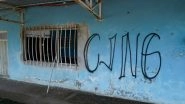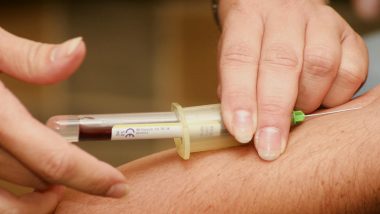Delhi, July 22: Delhi Health Minister Satyender Jain on Wednesday in a press conference said that serological survey will be conducted in the national capital every month. On Tuesday, the Ministry of Health and Family Welfare revealed the data for the serological survey conducted in Delhi between June 27 to July 10, showed that 22.86 percent people have antibodies for a viral disease while remaining 77 percent of the population is still susceptible.
"Delhi government has decided to conduct serosurvey every month. It will be done from the first day of the month till 5th of every month," Jain said, adding that the next survey would be conducted on August 1. As the Sero Surveillance will be carried out every month, here's everything you need to know about Serological Survey and how it was carried out in the national capital. Serological Survey to Be Conducted in Delhi Every Month, Says Health Minister Satyendra Jain.
What is a Serological Survey?
Serological tests are used to identify antibodies and antigens. The test identifies antibodies in the person's immune system who has recovered from a disease. It can also be conducted to check if a person is immune to certain diseases.
In a serological survey, such tests are being carried on a sample of the population. "Such surveys are sometimes performed by random, anonymous sampling from samples taken for other medical tests or to assess the prevalence of antibodies of a specific organism or protective titre of antibodies in a population," according to Wikipedia.
How Serological Survey Was Carried Out in Delhi?
In Delhi, the tests were carried out by 160 four-member teams- each comprising of ASHA/Anganwadi worker, a pharmacist, an auxiliary nurse midwife (ANM) and a phlebotomist visited homes that were picked randomly by the district administration.
During the last serological survey in Delhi, as many as 21,387 samples were collected. Out of the 11 districts in the national capital, eight districts have seroprevalence of over 20 per cent. In north, north-east, central and Shahdara districts, the sero-prevalence is 27 percent. Delhi's south area has 12.95 percent sero-prevalence, while south-west and west Delhi has 12.95 percent and 19.13 percent, respectively.
(The above story first appeared on LatestLY on Jul 22, 2020 03:39 PM IST. For more news and updates on politics, world, sports, entertainment and lifestyle, log on to our website latestly.com).













 Quickly
Quickly


